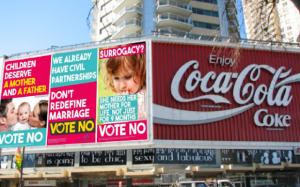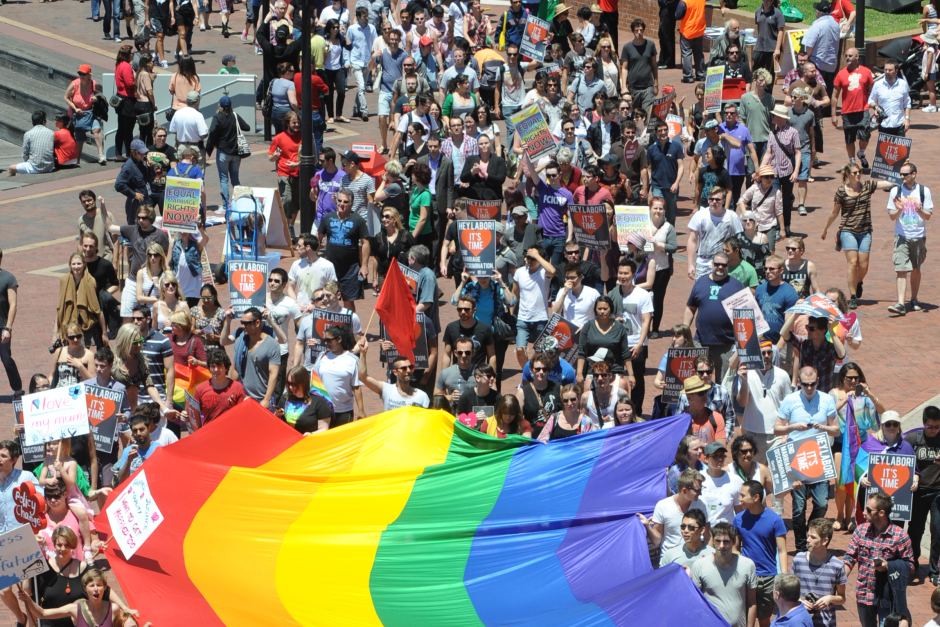Regardless of the Plebiscite Outcome, It’s Already Done Some Detrimental Damage
By Matilda Douglas-Henry
The fate of the plebiscite remains unknown. With many key points being released today – such as an agreed voting date of February 11 next year and that funding will be allocated to both ‘yes’ and ‘no’ camps – we still don’t know if it will actually happen yet.
Either way, these endless months of national debate have already done some serious damage.
Yesterday, Bill Shorten told us something that we pretty much already knew: that an explicit anti-gay marriage campaign would undoubtedly spike suicide rates in LGBTQIA teenagers, and that “if one child commits suicide over the plebiscite, then that is one too many”. Shorten is on the money here; but I think what has been fundamentally missing from this entire debate is that so much awfulness has already ensued to rupture the confidence of a young queer person living in Australia.
As someone who is comfortable with my sexuality, I have been perturbed and emotionally shaken by the ignorant theories articulated by audience members on Q&A, or the natural ease at which conservative politicians endorse the plebiscite. I can’t imagine what all this must look like to someone who grapples with insecurity around their queerness. Perhaps they were on the cusp of coming out to their parents, only to see Bridget McKenzie’s inane response to her brother’s question on Q&A last night. Maybe the devastating plight of the Safe Schools program has already made them feel isolated and unable to express themselves in the country they live in.
A government-funded ‘no’ campaign would certainly be devastating. It feels ludicrous and outdated to consider, in a few months’ time, you might be watching The Bachelor and anti-gay propaganda is suddenly blasting in your living room – television is heteronormative enough! But discrimination against the LGBTQIA community is so rife here that the plebiscite would only encourage an agenda we’ve been exposed to countless times before.

I have often contemplated how the government would choose to frame the question when putting it to voters, if the plebiscite was to go ahead. Today, we found out that it will be: “Should the law be changed to allow same-sex couples to marry?”
This appears straightforward enough. However, considering the unexpected catastrophe of Brexit, this question runs the risk of being too vague, and too broad. I asked a friend of mine, who voted in the Brexit referendum, whether the question put to voters was confusing enough to warrant the shock result/the fact that thousands of Brits googled “what is the EU” after voting. He said that it was articulated concisely, so that wasn’t the issue.
Perhaps the more underlying problem was that it lacked specificity – leading people to, in that moment, ultimately respond to fear-mongering campaigns, or pamphlets from Brexit advocates who are so passionate about their perspective that it’ll sound fair.
I hope that, if the time comes, the plebiscite is put to the Australian people with a set of corresponding definitions for key terms. It sounds completely unnecessary, but we’re well aware of the level of idiocy this country has displayed throughout its history.
The question is also hideously binary-endorsing, with no regard for trans and gender non-conforming people. This erasure has been perpetuated throughout the course of the plebiscite debate – while pro-equality politicians throw the LGBT acronym around with pride, they only ever discuss this issue within the framework of ‘gay marriage’. This is hurtful enough for queer people who do not identify as gay or lesbian. A campaign-heavy plebiscite would only heighten this ‘invisible’ violence.
So, whichever way it goes, folks, the government have done a ripper of a job in silencing the queer community. I’d love to say that this would all change with a marriage vote in parliament – rendering the plebiscite useless – but the conservatism in Australia is so darn engrained it might be a bit late for that.

